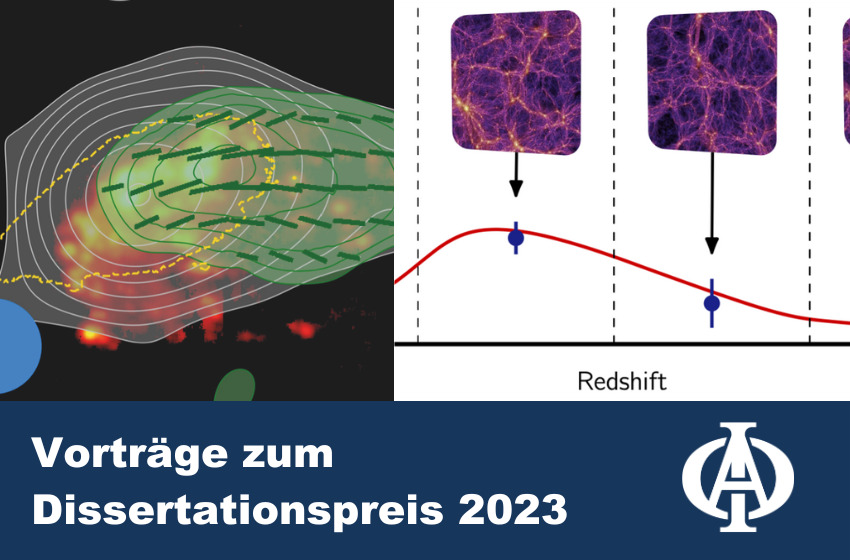On Monday (18.12.23) at 12.00 c.t. the next meeting of our physics colloquium will take place.
On this date, the two candidates for this year's dissertation prize will give their presentations. The faculty is looking forward to the presentations by Dr. Ancla Müller and Dr. Jan Luca van den Busch.
In the past decades, ram pressure has been found to be one of the most important mechanism to regulate the gas content of galaxies in the Universe. On larger scales of several hundred kiloparsecs, the outflows of active galactic nuclei can be bent. On smaller galaxy-size scales, the same effect can strip gas from individual galaxies and form debris downstream potentially showing in-situ star-formation. Despite the fact that galaxy star-formation is quenched over larger time-scales due to gas being removed by ram-pressure stripping, the galaxy can undergo a phase of very active star formation in between. On both scales, the role of magnetic fields and their influence on the physical processes have been barely studied.
In my PhD thesis, I have investigated for the very first time the magnetic field configuration in a ram-pressure stripped galaxy, where the derived parameters were used to restrict appropriate MHD-simulations. Observation and simulation agreed on a common model demonstrating the gas distribution of the multi-phase debris. On larger scales these unique observations are used to study the effect of ram pressure onto the lifetime of cosmic-ray particles by investigating re-acceleration processes.
On both scales the study of magnetic fields has revealed its importance with regard to the galaxy and galaxy cluster evolution and has opened a new field of research concerning the understanding of the gas and particle contribution in those environments.
Abstract lecture Dr. Ancla Müller
Modern cosmology depends heavily on studying the large scale distribution of matter, which allows us to get a better understanding of the physics of the universe. Most of the observations however consist of imaging data, which restricts us to a two-dimensional view. The reconstruction of the third dimension, the distance or redshift, is therefore a key challenge and potential systematic for cosmological studies. In this talk I present how we approached this issue for the gravitational lensing data of the Kilo-Degree Survey. We calibrate the redshift distribution of the observed galaxies with two independent methods and verify our results with realistic, simulated datasets. This allows us to confirm the previously reported tension between cosmological parameter constraints obtained from weak gravitational lensing and the early universe from measurements of the cosmic microwave background.
Abstract lecture Dr. Jan Luca van den Busch
The introduction will be made by Prof. Dr. Hendrik Hildebrandt.
The faculty cordially invites all interested parties. The event will take place in lecture hall HZO 20. We offer coffee and cookies before the colloquium.
All dates of the Physics Colloquium can be found here.


